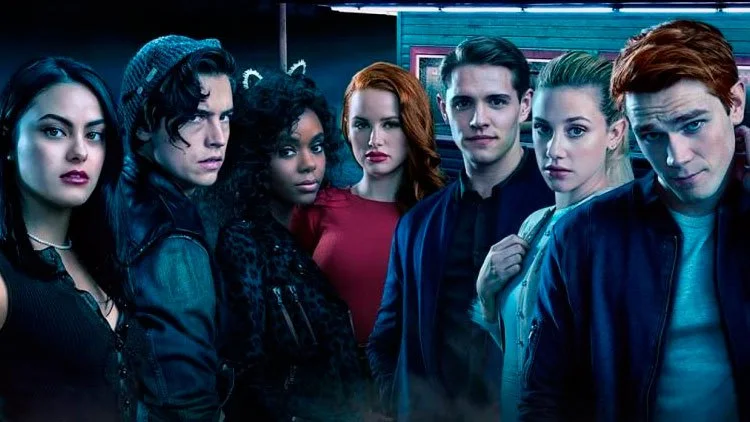The Umbrella Academy: How to Make the Expected, Unexpected (and Fun!)
*Spoilers for the Umbrella Academy
We live in a complete glut of superhero films. Afterall, there are 20 Marvel movies, five in the DC Extended Universe, and six TV shows in the CW’s “Arrowverse.” And this doesn’t include the X-Men and Deadpool movies, Netflix Marvel shows, and more. There are a lot. This means that making a new, or even slightly different, superhero film or show is not easy. Viewers know the tropes, the plots, even the different styles these stories take. The dark angsty ones, the silly ones (all the love for the Lego Batman Movie), the earnest ones, etc.
In this environment, it is difficult to create a new story that breaks apart from the pack. Some have, most notably Black Panther which was the first superhero film to be nominated for “Best Picture” at the Oscars. And while I’m not a die-hard fan of the genre, I’m fairly well-versed. So when my friend Hannah told me that I had to watch The Umbrella Academy – a new 10-episode superhero show from Netflix - last week, I immediately took her advice. And I am very glad I did.
Netflix’s The Umbrella Academy does not break the mold of superhero stories. In many ways, this show is exactly the one you’d expect. A group of misfits with superpowers who need to pull together despite their baggage to save the world. If that sounds familiar, that’s because it is. But while The Umbrella Academy does not transcend, or even redefine the superhero story, it manages to be both delightful and compelling. And it does by telling the story you already know far more interesting.
It Doesn’t Rely on One Superhero “Genre”
Most superhero stories that make a major cultural impact these days do so by breaking the mold of what a superhero story is. The Dark Knight emphasized the moral ambiguity of being a vigilante, and a darker, grittier version of superheroes. Guardians of the Galaxy showed the genre could be funny and kind of silly. Wonder Woman put the (horribly neglected) superheroine front and center.
What these films have in common is that they have a thing that defines how the story is told. The Umbrella Academy doesn’t do that. Instead, it pulls together bits of each genre and weaves them into a cohesive whole. The best example is the two side characters Hazel and Cha-Cha. They are played as comedic characters, but they are also extremely competent sadistic assassins. They combine the dark and gritty with the light-heartedness seamlessly. And the entire show is littered with examples of this.
The Aesthetic
It’s hard to explain the aesthic of this show. I’ve seen other articles call it retro-future, but I think that isn’t quite correct, as there is a glossiness to retro-future, and lots of gadgets. I think a better term would be anachronistic present. There’s a sentient ape-butler and one of the main characters lives on the moon, but no one has a cell phone. They instead use payphones and very old-fashioned home phones. There doesn’t appear to be an internet.
This overall aesthetic makes the show feel familiar and grounded in reality, even at it serves as a reminder that this world is different. And it does it without being distracting to the viewer.
The Fantastic Acting
This show owes so much to the fantastic actors and actresses. With Ellen Page as the lead, one can expect some great acting, and the show doesn’t disappoint. Some of the actors don’t have much to work with, such as the actor who plays Diego - the edgy Batman-type superhero who doesn’t play by the rules and speaks in a gravelly voice. But all of them imbue their characters with humanity in a way that made me feel empathy for even the least relatable characters.
However, the acting MVP is Aidan Gallagher, who plays Number Five (no name, just Number Five). Number Five is a powerful, arrogant member of the Umbrella Academy who spent years as an assassin. He’s also somewhat insane, having lived alone in the post-apocalyptic world for decades. Oh, and the actor playing is character is only 15. Robert Sheehan, who plays Klaus, is a close second.
It Randomly Goes Off Course
The Umbrella Academy also occasionally just goes bonkers. And I’m not talking about the various plot twists, which were all quite standard. It’s more that watching the show is like being in a car going straight-line and then suddenly, there’s another car next to you that’s upside-down. You as a viewer will have random moments where you go “wait, what?”
I think my favorite bonkers moment is when one of the characters dies. In the afterlife sequence, everything is black and white except for a character’s t-shirt, which is a bright Hawaiian tank top. Even the actor is in black and white. Also, God is a depicted as fairly bratty girl.
If you couldn’t tell, I loved the Umbrella Academy. It is still the show you expect it to be, the plot and its various twists were fairly standard, as were some, but definitely not all, of the characters. And yet it keeps it interesting. It’s different and compelling enough that I said up late two nights in a row to watch “just one more episode.” And its fun, sometimes in very dark ways. I highly recommend it. A great show doesn’t need to break all the rules or the mold, it just needs to take those pieces and use them in different ways. And that’s exactly what The Umbrella Academy does.





